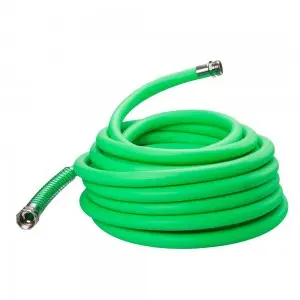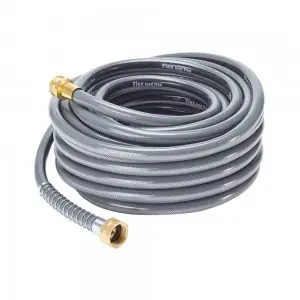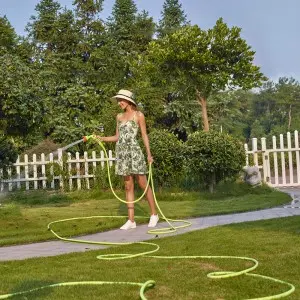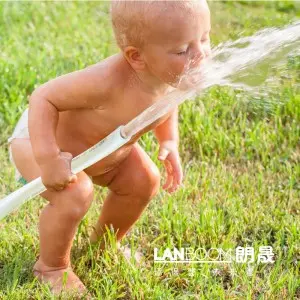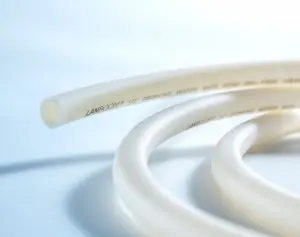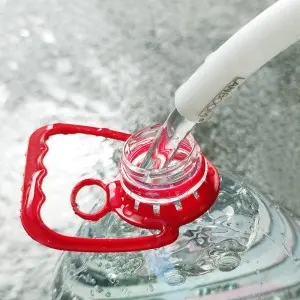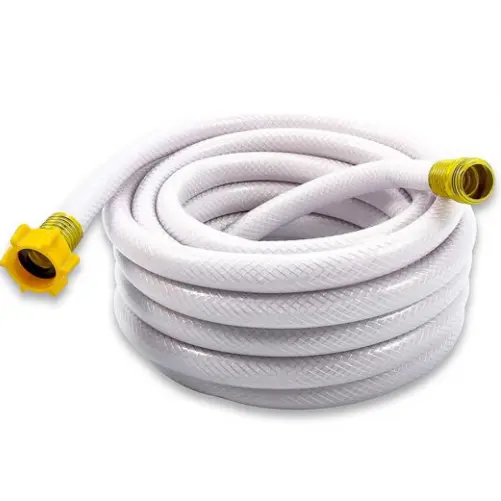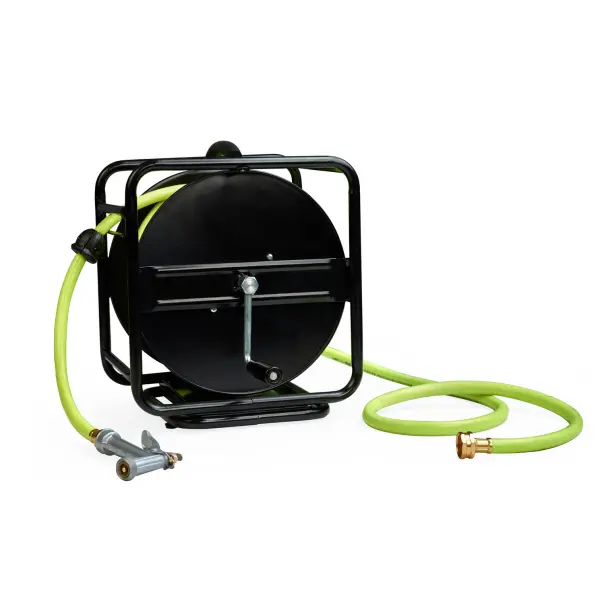If you have a home garden where your plant flowers, fruits or vegetables, you need a flexible garden hose that will help you water your plants easily. You will also need a garden hose when watering your lawn and trees. Watering cans may not meet your requirements, especially if your garden is sizeable. You would need to put in twice the effort and time to water your whole garden using a watering can as opposed to a garden hose. That is why you need a flexible garden hose to water your plants with more convenience and with less time and effort.
Given the significant utility of a water hose in your home garden, there is a need to ensure that you buy the best quality of flexible water hoses. You don’t want to buy the cheap quality of garden hose, as the hose will only serve you for a short time before you have to replace it. Cheap quality of garden hoses are more susceptible to kinking, cracking and abrasion and will only serve you for a limited period. On the other hand, a good garden hose will serve you for up to ten years without the need for replacement.
Since we all need a flexible garden hose that will give us longer service so that we water our plants without any inconveniences, it is important to know how to select a quality garden hose.
Here are the factors to consider when buying a garden hose.
1. The Type of Material the Water Hose is Made Of
For the most part, garden hoses are made of rubber, vinyl or polyurethane. These materials vary in quality, with vinyl hoses being the lightest, cheapest, and also with the lowest lifespan. You can purchase vinyl hoses if you are not planning to put up your garden for long. Rubber hoses are of better quality compared to vinyl hoses. Resultantly, they are more durable and also more costly. Water hoses made of rubber will endure extreme weather conditions before they wear and tear, and they are also more flexible and easy to move around in your garden.
The best quality of garden hoses are made of polyurethane. Polyurethane garden hoses fetch the highest price, and they guarantee all-weather durability. When well maintained, they will you serve for more than a decade without repairs or replacements.
2. Toxic-free Water Hoses
Additionally, you should select a toxic-free hose, especially if you grow your food in your garden. The surest way to ensure your garden hose is toxic-free is to buy the water hoses made of polyurethane that are tested and graded by FDA and NSF. Ensure also that the fittings on the water hose are lead safe. Generally, you want to avoid water hoses that are made of synthetic rubber or PVC. When buying a flexible garden hose, also ensure that it is marked, drinking water safe. However, the label only should not convince you, as you may fall prey to marketing tricks. Ensure that you test it out.
3. The Thickness and Length of the Water Hose
The thickness of a water hose is determined by the number of layers used in its manufacturing. The layers start from two-ply to six-ply. As such, six-ply hoses are the strongest and more resistant to bending and cracking while two-ply hoses easily kink and crack. You should also consider the length of your garden hose.
4. Water Hose Fittings
Your flexible garden hose connects to the water source using plastic or brass fitting. The plastic fittings are light in weight but also tend to break easily and do not last long. The brass fittings are heavier but are also rust-resistant and more durable. You should select the water hose with the fittings that allow you to work with much ease and also lasts longer.
When selecting a flexible garden hose, you should ensure you get the one that serves all your garden needs effectively. Consider the quality of material, the thickness of the water hose and the type of couplings used. You will enjoy your gardening more when using a garden hose that makes work easy for you.
Post time: Nov-16-2022

